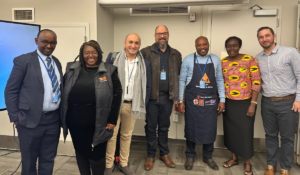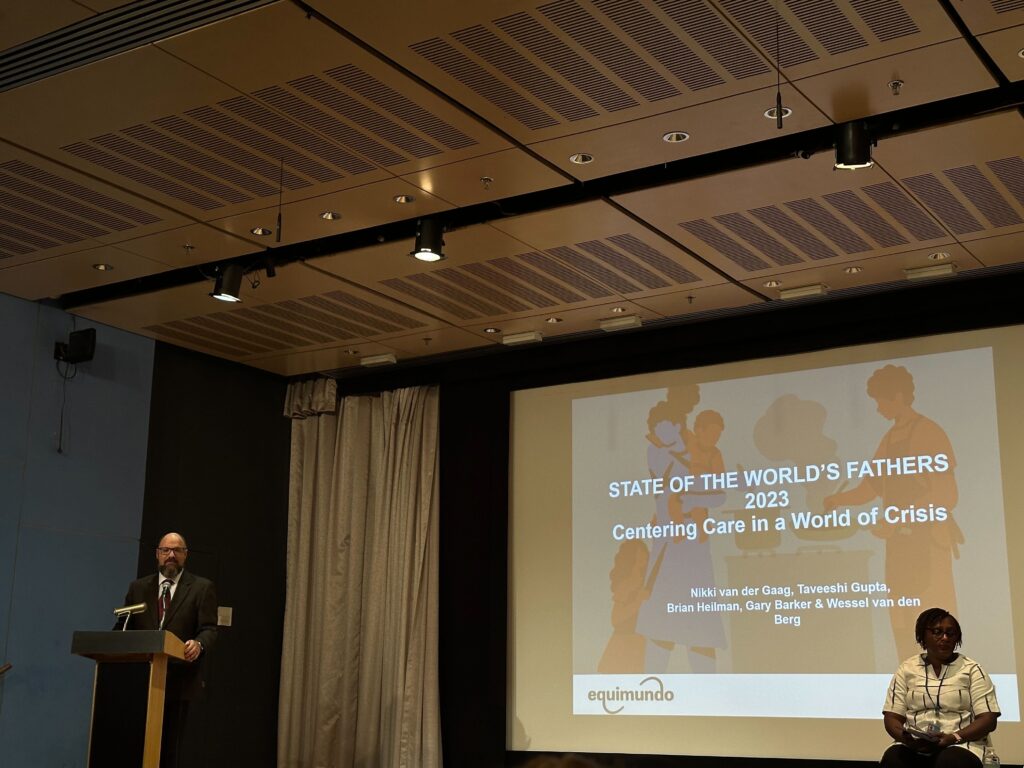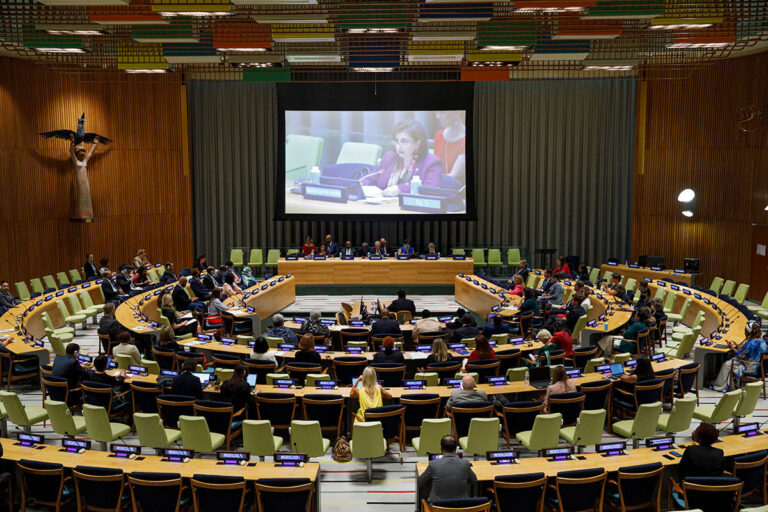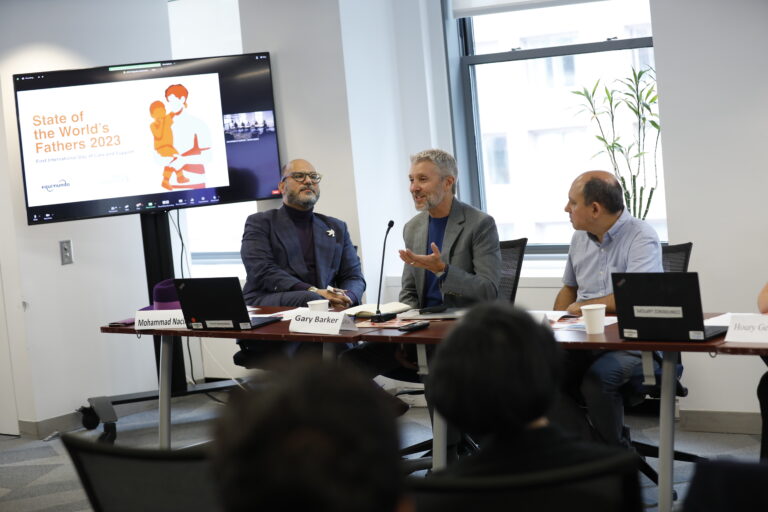The 68th Session of the UN Commission on the Status of Women (CSW) was held in New York City in March 2024. Every year, the convening focuses on a theme, and this year’s theme was “Accelerating the achievement of gender equality and the empowerment of all women and girls by addressing poverty and strengthening institutions and financing with a gender perspective.”
At CSW68, Equimundo co-hosted eight side events and parallel events alongside partners including Sonke Gender Justice, World Policy Center, RWAMREC, ChildFund Alliance, AÇEV, Azad Foundation, the Breakthrough Trust, MenEngage Global, and Generation Gender consortium partners. Our events centered on issues of parental leave, early childhood development and care, engaging men and boys in challenging social norms, gender-transformative approaches to improve women’s livelihoods, and technology-facilitated gender-based violence.

From our events:
- Event recap: Parental leave and beyond: Care policies and informally employed workers
- Event recap: Is technology-facilitated gender-based violence real?
- Recording: Engaging Women as Leaders to End Poverty on a Livable Planet | World Bank Live
- Recording: Catalysts for change: breaking down gender stereotypes in media and advertising
- Recording: The Importance of Care in Achieving Gender Equality: Early Childhood Development (ECD), Parenting Services, and Policies
Other key themes emerged in our sessions and conference-wide during CSW.
- Gender equality efforts are underfunded. Estimates show that only four percent of official development assistance directly contributes to funding gender equality efforts. In order to better support these efforts globally, we need a complete overhaul of the economic system, said the attendees at the MenEngage opening and closing caucuses, represented primarily by civil society organizations.At the same time, gender equality advocacy efforts are being stifled. Participants discussed how civic space, where advocates may freely engage in dialogue and protest, is shrinking in many countries including Sri Lanka, India, Trinidad and Tobago, and Guyana. “Civil society is a closed space and it is becoming more and more difficult to engage with stakeholders,” emphasized an activist from South Africa. There’s a ubiquitous emotion of frustration among civil society representatives, who are trying to circumnavigate political systems and oppressive leadership in their respective countries to achieve their goals, all without adequate funding.
“At the global level, we are failing to invest in women and girls. And the continuing impact of the COVID-19 pandemic, mounting debt, climate-related disasters and an ongoing cost-of-living crisis are all shrinking the pie even more. We will not solve today’s challenges by relying on a global financial system that helps perpetuate inequality.”
– UN Secretary-General António Guterres, during the opening session at CSW68 - Backlash is fierce. In all conversations and panel discussions about the engagement of men and boys in the efforts for gender equality, the concern of backlash was raised – backlash from governments, men, the general population, and neoliberal institutions that thrive on existing unequal power structures. According to participants, backlash from governments worldwide is usually aimed toward NGOs and civil society organizations working to reduce the gender gap.
- While backlash remains a pressing issue, activists shared success stories which inspire continued efforts to combat gender inequality. For example, in an affirmation of Equimundo’s gender-transformative work with men and boys, World Vision Bangladesh shared the effectiveness of our collaboration on a MenCare program aimed to improve livelihoods and women’s financial inclusion in Bangladesh.In another event about engaging women as leaders to end poverty on a livable planet, political leaders from South Africa, Sierra Leone, and Jordan emphasized the success of collective action to advance women’s participation in the labor force and increase their decision-making power across the globe, and the need for state representatives to be supportive of gender equality policies. In Sierra Leone, for instance, the 2022 Gender Equality and Women’s Empowerment Act recognized the need to make provisions for women in a gender-inequitable world. The Jordanian Minister also emphasized the importance of women’s political participation and representation in government, being the first woman in Jordan to become a legal affairs minister herself. The representation from governments from both Global South and Global North countries, and their commitment to gender equality provided some respite in the face of increased state-sponsored backlash.
- Audience members brought up the challenge of increasing participation of men in male engagement workshops. In a panel on Early Childhood Development (ECD) and care policies, AÇEV in Turkiye spoke about the success of the organization’s Father Support Program, and how word-of-mouth publicity helped popularize the workshops. Additionally, they recognized that the framing of the intervention was also a crucial determinant of the success of the program. The organization was conscientious not to advertise it as an intervention meant to improve or criticize men. This is reflective of Equimundo’s approach to engaging men and boys in gender equality programming: to reframe the narrative to an empowering and inclusive approach to engaging men and boys. ChildFund Alliance in West Africa noted that the way to get more men involved was first through engaging children and mothers in their programming, and then approaching fathers. In another panel on challenging social norms and systems for gender justice, the Breakthrough Trust in India discussed that the challenge of low participation of men was addressed through engaging young people as leaders in their communities, who then became an inspiration for adults, specifically men, to participate in their exercises.
To read more about CSW68, visit the UN press page here.



